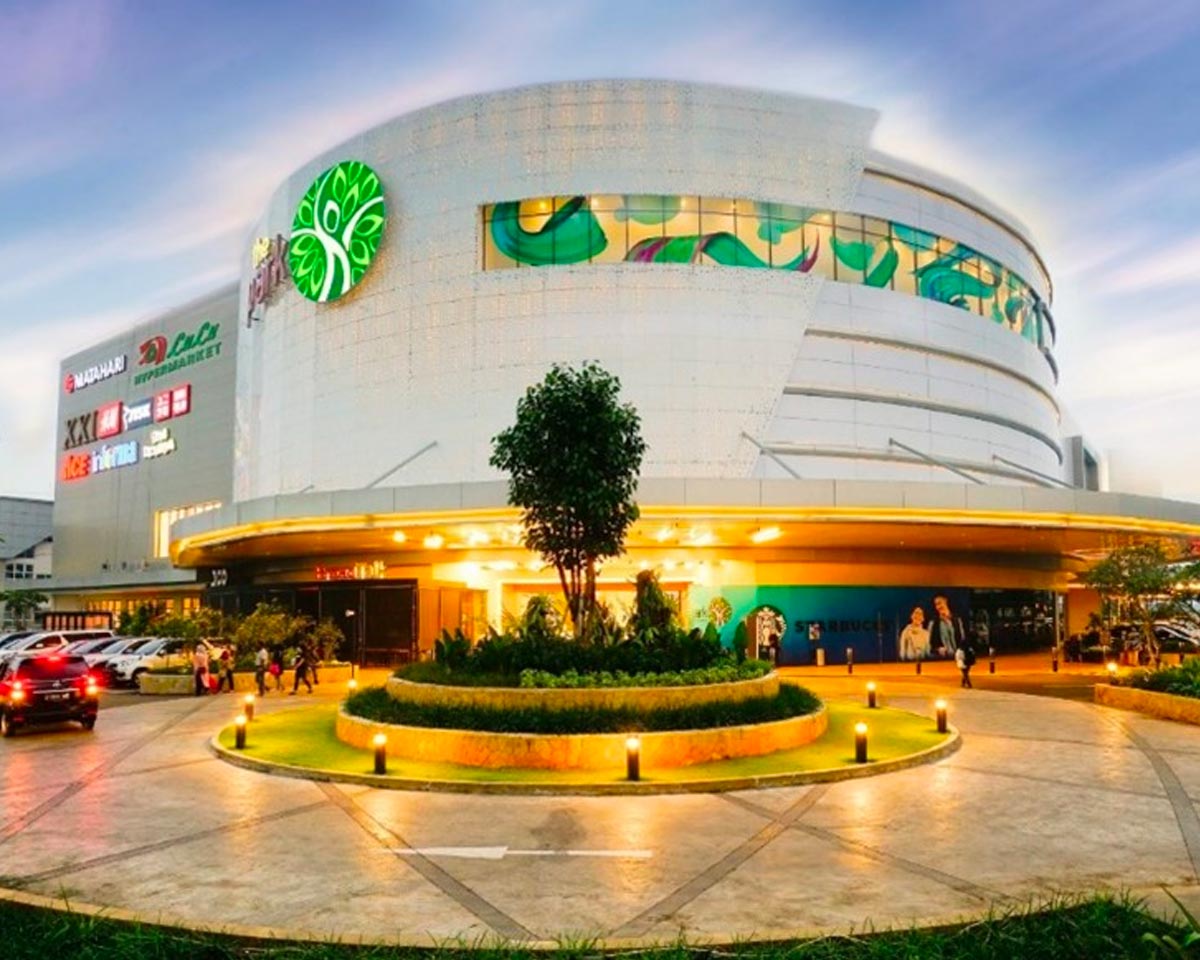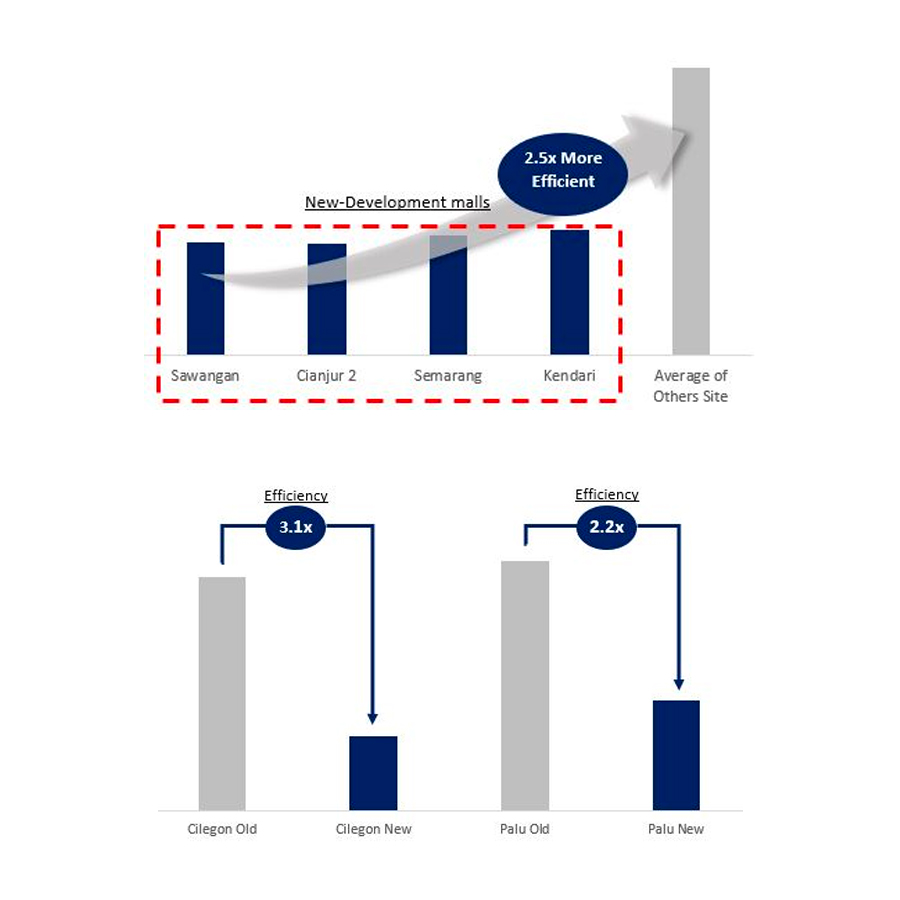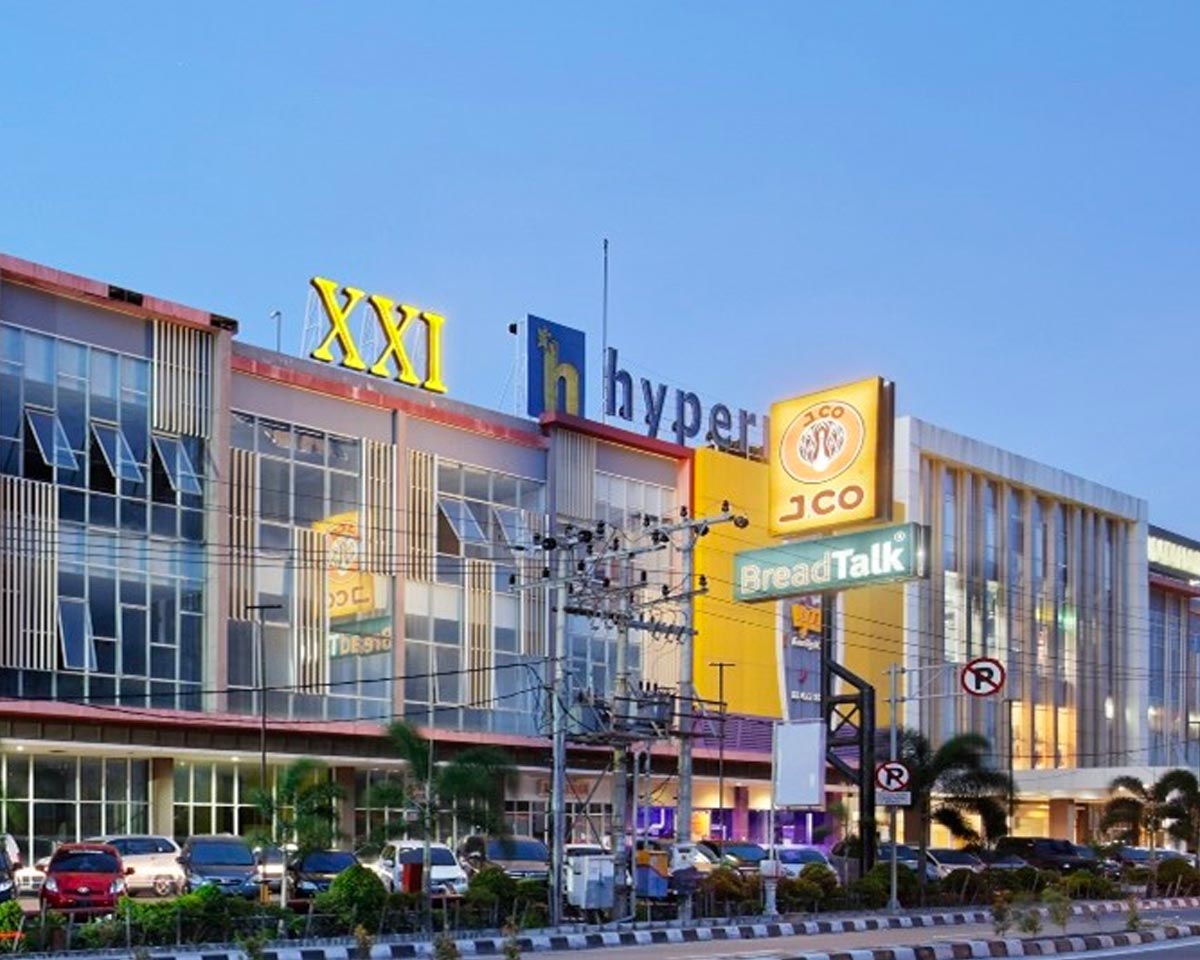Why Data Matters
An Interview with Dhawal Doshi
In today’s commercial real estate sector, the full focus is on ESG – reporting, compliance, and standards. Simply benchmarking and reporting on a company’s real estate assets is no longer enough as concerned stakeholders and stricter regulations reshape the playing field.
But while most companies rush to comply, Dhawal Doshi, Head of Research & ESG at NWP Property, is not concerned. Having already committed a large part of NWP’s portfolio, 16 shopping malls, to EDGE certification, Dhawal notes that going green is not just good for the environment, but also good for business. NWP Property was established in 2015 as a joint venture between Warburg Pincus and PT City Retail Developments Tbk (IDX: NIRO). The company is now the fastest growing new-economy consumer infrastructure platform in Indonesia with the largest independent network of modern community-based shopping malls, as well as a growing pipeline of logistics distribution centers and warehouses. With a keen focus on sustainability, the company had its sights set on leading in this space from the outset. Today, NWP Property is leading the market in EDGE certification of retail malls in Indonesia.
NWP’s commitment to its ESG objectives of making a positive contribution to local communities was spearheaded by Dhawal and his team, who methodically deployed a thoughtful, data-driven approach to evaluate every development, acquisition, and operating asset regarding energy efficiencies against the cost and the impact of retrofitting these properties. The breadth and depth of diversity in NWP’s retail portfolio calls for a specific, asset-centric approach considering various factors such as size, space, utility, and financial returns. As a result, sustainability considerations are integrated into NWP’s development, operation, and budgeting process. Overall, green business practices have proven themselves to make financial sense for NWP.
“While we are pleased to receive recognition from IFC for our ESG team’s diligent efforts over the past few years, our journey on this path still has a long way to go. We look forward to continue learning and implementing new measures in improving efficiency and sustainability of all our assets”.
Dhawal Doshi, Head of Research & ESG at NWP Property
In 2016, when Dhawal began his journey at NWP, he realized he had to make a strong case for green building certification. While sustainability already was a key focus of the company, ESG results were initially not captured under a separate category. As a result, the company was unable to fully implement or highlight its sustainability efforts. Given Dhawal’s background in economics, he understood the need to work and gather his most important tool – data – if he was going to convince anyone to go green. This data would be converted to the most important metric, cost effectiveness.
The existing, older facilities in the company’s portfolio offered some clear opportunities, notwithstanding the challenges in terms of collecting data and telling the cost savings story, as well as the substantial upfront costs. On the other hand, the opportunities for green-field development projects were less obvious, and required careful energy modeling, benchmarking, and potential cost-benefit analysis. By systematically creating a process to translate the potential energy-saving opportunities into cost and savings, Dhawal and the team was able to create a solid foundation to expedite the company’s sustainability journey. Furthermore, he was also able to quickly replicate the learnings from one project to other properties.
“Data turned out to be the key tool if we were going to convince anyone to go green.”
The Park Sawangan
At The Park Sawangan, a green-field development project in South Jakarta, the team utilized energy modeling to replace the initial design of an oil-based chiller into a magnetic-bearing electric water-cooled chiller for the AC system. The team also identified and installed other equipment such as five variable-speed drives (VSDs), chiller plant control systems, scale cleaning system, as well as building outer envelope modification and efficient lighting to improve energy efficiency.
These changes resulted in improving energy efficiency by approximately 30 % as compared to the EDGE baseline and around 50 – 60% better compared to other malls in the portfolio. These strategies were subsequently implemented at four new green-field development assets, thereby becoming the de-facto baseline construction standard for future developments, such as Citimall Cianjur 2, The Park Semarang and The Park Kendari.
Citimall Cianjur II
At Citimall Cilegon, an older-generation acquisition asset, the team retrofitted an old and highly inefficient split-duct AC system into a water-cooled magnetic-bearing chiller, improving cooling efficiency by about 60% while also improving comfort level. Although the change of system involved large upfront investment and required diligent analysis to measure its impact, the process and approach of evaluating retrofitting opportunities at older operating assets has been replicated at several other assets, resulting in energy savings, while reducing carbon footprint. Case in point is Citimall Palu, a similar older-generation acquisition asset in Central-Sulawesi province, where the replacement of an existing AC system which was around 10 years old will more than double cooling efficiency.
Citimall Cilegon
At Pejaten Mall and Cirebon Super-Block, two of the largest and most iconic malls in the portfolio, NWP installed VSDs, re-sized pumps, chiller plant control systems, control valve and scale cleaning systems to optimize comfort level and improve cooling efficiency by about 20 – 25% from previous levels, generating an immediate reduction in operation cost. The two projects were identified for energy-based upgrades based on a review of their existing Energy Use Intensity (EUI) and potential impact on the asset and portfolio.
"Adopting green building practices is a smart move for businesses. IFC's extensive experience has demonstrated that highly resource-efficient buildings can be designed and constructed with a low 0-3% additional cost with significant medium-long term savings on operations and maintenance. NWP has arrived at the same conclusion through their data analysis. By committing to decarbonize their portfolio, NWP is setting an example for the Indonesian retail sector. This serves as a vital reminder to investors, clients, and peers that every building, regardless of its size or sector, can play a role in promoting sustainability by adopting eco-friendly measures."
Diep Nguyen-Van Houtte, Senior Manager, Climate Business Department, IFC
Cirebon Super Block
NWP has also extended its sustainability drive to include water and waste management. For example, at Citimall Cilegon and Citimall Palu, the team has successfully disposed of about 700 – 800 kilograms of highly climate-polluting R22 refrigerants, generated during the dismantling of its old AC system. The team is also implementing water cleaning and recycling techniques to re-use for various purposes and reduce water consumption by up to 30%. In addition, they are also evaluating other waste management and renewable energy solutions for imminent implementation, all of which are backed by data driven analysis for installation and operation.
After a few years of harnessing data from existing malls and using the EDGE calculation application, Dhawal and his team are now able to make a ROI plan for green building certification for all of NWP’s malls. By using data from their existing renovation projects, NWP can produce even more realistic forecasts for future projects. The team has also adopted a culture of continuous learning to improve energy efficiency and reduce operation costs while simultaneously improving the health and safety measures of projects.
Under Dhawal’s leadership, eight properties have already been EDGE-certified, and with eight more in the process of certification (with more to come), the company will continue to be a great example of sustainable leadership in the commercial real-estate market.
“Building materials account for half of the solid waste generated every year worldwide. By 2025, that amount is expected to reach 2.2 billion tons per year globally, which means the greening of new and existing buildings is essential to addressing the climate crisis,” said Kim See Lim, IFC’s Regional Director for East Asia and the Pacific. “IFC is committed to working with the private-sector and governments to expand the bank of green spaces globally, and NWP should be applauded for its leadership in Indonesia. It sends an important message to investors, clients, and peers that all buildings—regardless of sector and floor space—can contribute to a low-carbon future.”





